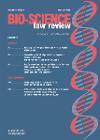Bio-Science Law Review - Volume 16 - Issue 2

ARTICLES
TWEAKING THE EU ORPHAN MEDICINAL PRODUCTS REGIME
TREVOR COOK Wilmer Cutler Pickering Hale and Dorr LLP
This article reviews the operation of the exclusivity provisions of the EU regulatory regime for orphan medicinal products, established under Regulation (EC) No 141/20001 and Commission Regulation (EC) No 847/2000. Since its introduction this underlying legislation has been supplemented in 2003 by a Communication from the Commission, and in 2008 by two Commission Guidelines, each of which provide the Commission's 'soft law' interpretation of certain aspects of the legislation, but which is not legally binding. In the last two years, however, the European Commission has been considering whether this legislative framework needs revision, and if so in what way. As discussed here, the results of this Commission activity can now be seen, one of which has been to replace the 2003 Communication by a new Commission Notice in 2016, and the other of which is likely to be a proposal to revise the definition of 'similar medicinal product' in Commission Regulation (EC) No 847/2000.
COMMENTS ON THE UN HIGH-LEVEL PANEL REPORT ON ACCESS TO MEDICINES
THE RT HON PROFESSOR SIR ROBIN JACOB Faculty of Laws, University College London
In response to a request from the International Federation of Pharmaceutical Manufacturers & Associations, and based on his extensive personal experience, the author presents detailed comments on the UN report, covering many aspects of the patent system.
THE EUROPEAN COURT TO RULE ON MILESTONE IN EUROPEAN GMO LEGISLATION: THE LEGAL CLASSIFICATION OF MUTAGENESIS IN PLANT BREEDING
GEERT GLAS AND TINE CARMELIET Allen & Overy (Belgium) LLP
Several new plant breeding techniques have been developed in the last decade that have made it possible to perform genome modifications in seed and plants. The novel nature of these new plant breeding techniques has led to a debate over whether or not these techniques result in organisms that could be deemed to be GMOs and consequently should be subject to stringent regulatory requirements. The European Court of Justice is expected to rule on this fundamental question through a preliminary reference procedure in the later part of 2017.
DECLARATORY RELIEF FOR HUMIRA BIOSIMILAR
JENNY DAVIES and CHRIS FREETH Gowling WLG
Clearing the route to market for a generic or biosimilar pharmaceutical is often complicated. If granted patents stand in the way, revocation can be sought. However, what can be done if there are only patent applications, which cannot be challenged in the national courts until they are granted? The authors consider the judgment in Fujifilm Kyowa Kirin Biologics v AbbVie and the implications of the decision.
ENFORCEMENT OF TRADE MARK RIGHTS IS NOT A DISGUISED RESTRICTION ON TRADE: FLYNN v DRUGSRUS
DR CHRIS HAYES AND JOANNA MCCULLOCH Brands & IP, Lewis Silkin LLP
The free movement of goods and services fundamentally underpins the EU. One aspect of this is the parallel importation of medicines placed on the market at a relatively low price in one country and sold at a higher price in another country. The owners of branded products have sought, with varying degrees of success, to inhibit this trade. This case demonstrates that under certain circumstances the proprietor of a registered trade mark may inhibit parallel trade by the enforcement of its trade mark.
